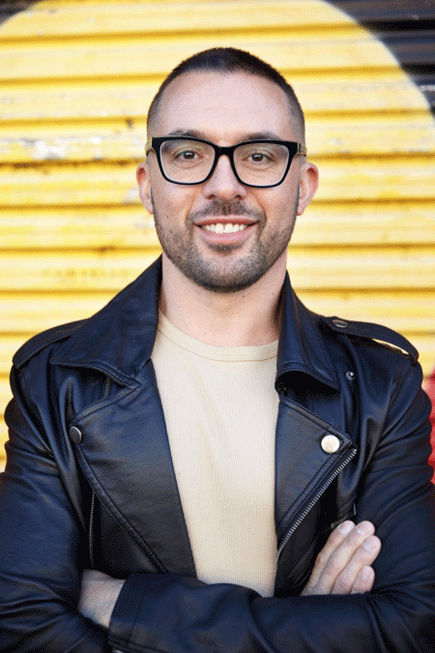Mitch Hibbens (he/him)

Mitch Hibbens is a queer Wiradjuri person living in Wiradjuri country and working with the Dilin Duwa Centre for Indigenous Business Leadership. He is currently the program director for the MURRA Indigenous Business Masterclass Program and an associate lecturer.
Mitch started his career working in the health space before pivoting into the world of academia about ten years ago. He came to join the university in a rather roundabout way. Through his role supporting Aboriginal & Torres Strait Islander students in their studies at a regional university, he developed strong networks that led him to his current position at the University of Melbourne.
Reflecting on his journey through his career, Mitch acknowledges that the privilege associated with being a lighter-skinned Aboriginal person helped him to navigate the white-dominated world of academia. At the same time, like many other Aboriginal and Torres Strait Islander people in Australia, Mitch knows what it means to experience microaggressions and attempts to classify and implicitly delegitimatize his identity. Along with former colleagues, Mitch has compared the process of becoming effective in his role at the university as being “chameleon-like,” proud of and secure in his Aboriginal identity and accountable to his community but conscious of the need to blend into other spaces to do that work.
Mitch is proud of his work with colleagues to “create opportunities for Aboriginal people” to achieve economic self-determination through access to a world-class business education. Ten years ago, the FBE had only limited Aboriginal representation, but now the flow-on effects of the MURRA Program can be seen: over 200 alumni complete the program with many going onto further education in the Faculty. Mitch is committed to promoting safe teaching spaces and helping to break down the diverse sets of barriers that prevent First Nations people from completing the programs that interest them without having to feel that they cannot be themselves. He also encourages open conversations about colonisation and its impacts, noting: “When you’re at home you’re on Aboriginal land and when you’re at uni, you’re on Aboriginal land.”